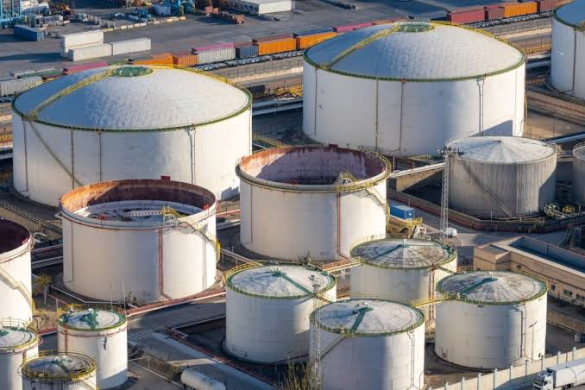Key Points
- Gasoline inventories rose unexpectedly, putting pressure on oil prices.
- Fed’s rate cut expectations could limit oil demand growth.
- OPEC+ considers delaying planned output increases to balance supply.
Oil prices were little changed Wednesday, pressured by a larger-than-expected build in U.S. gasoline inventories and concerns about interest rate cuts by the Federal Reserve next year.
Gasoline stock build pressures oil prices
However, prices found support from eased supply concerns following a ceasefire agreement between Israel and Hezbollah. Brent crude futures settled 2 cents higher at $72.83 per barrel. U.S. West Texas Intermediate crude fell 5 cents to $68.72.
The U.S. Energy Information Administration reported a 3.3 million-barrel increase in gasoline stocks to 212.2 million barrels for the week ending Nov. 22. This came as a surprise, as analysts in a Reuters poll had expected a draw of 46,000 barrels.
Meanwhile, crude oil stocks fell by 1.8 million barrels, much larger than the 605,000-barrel draw analysts had predicted.
The American Petroleum Institute, citing its own data, had said on Tuesday that oil inventories fell by 5.94 million barrels while fuel inventories increased last week. “It’s surprising to see gasoline inventories build so much, with implied demand not changing week-on-week, especially with expected record travel this Thanksgiving,” said Matt Smith, analyst at Kpler.
U.S. economic data showing that progress on inflation has stalled in recent months also weighed on oil prices. Analysts fear the slowdown could limit the Federal Reserve’s ability to cut interest rates in 2025.
Both oil benchmarks dropped Tuesday after Israel and Lebanon’s Hezbollah agreed to a ceasefire deal brokered by the U.S. and France.
OPEC+ weighs delaying output increase
The ceasefire took effect Wednesday. “The real question is how long the ceasefire will truly be honored,” said Dennis Kissler, senior vice president of trading at BOK Financial. Oil prices received some support after OPEC+ sources said the group is discussing delaying its planned oil output increase scheduled for January.
The decision will be made at a meeting on Dec. 1. OPEC+, which includes the Organization of the Petroleum Exporting Countries and allies led by Russia, had planned to ease production cuts gradually through 2024 and 2025.
However, weaker global demand and rising output outside the group have cast doubt on that plan. Commodity heads at Goldman Sachs and Morgan Stanley said oil prices are undervalued, pointing to a market deficit and risks to Iranian supply due to potential sanctions under U.S. President-elect Donald Trump.
Sources also told Reuters that crude oil could be subject to 25% tariffs if Trump follows through on his threats to impose tariffs on products from Mexico and Canada. Analysts warned that such a move could raise oil prices for U.S. refiners, squeezing margins and driving up fuel costs.



